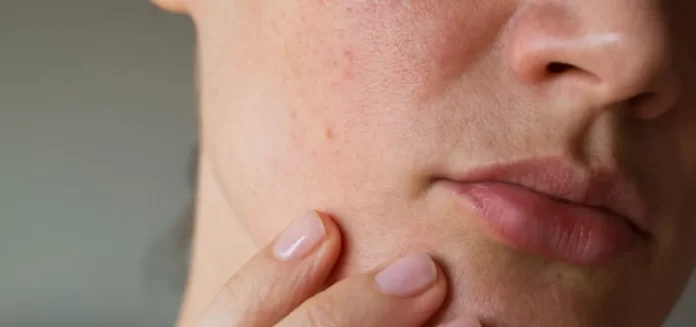Decoding Skin Barrier Dysfunction in Ichthyosis Vulgaris: An Ayurvedic Insight
Introduction
Ichthyosis Vulgaris is a prevalent genetic skin disorder characterized by the presence of dry, scaly skin. The root of this condition lies in skin barrier dysfunction, leading to increased transepidermal water loss and the buildup of scales on the skin. This article explores the underlying mechanisms of skin barrier dysfunction in Ichthyosis Vulgaris, its clinical implications, and possible management strategies, with a particular focus on Ayurvedic perspectives.
Understanding Skin Barrier Dysfunction
The skin barrier, primarily the stratum corneum, serves as the body’s first line of defense, protecting against environmental hazards, preventing water loss, and maintaining skin health. In Ichthyosis Vulgaris, this barrier is compromised, resulting in a variety of symptoms and challenges.
Mechanisms of Skin Barrier Dysfunction in Ichthyosis Vulgaris
Genetic Factors
Filaggrin Mutation:
- Filaggrin is a crucial protein involved in the formation of the skin barrier. It plays a role in aggregating keratin fibers and forming the corneocyte envelope, both essential for maintaining skin hydration and barrier integrity.
- Mutations in the filaggrin gene (FLG) are a primary cause of Ichthyosis Vulgaris. These mutations result in reduced or absent filaggrin protein, leading to defective skin barrier function.
Pathophysiology
Defective Cornification:
- Cornification is the process where skin cells mature, die, and form the outer protective layer. In Ichthyosis Vulgaris, this process is disrupted due to filaggrin deficiency, leading to an abnormal stratum corneum with impaired barrier function, causing increased water loss and dry, scaly skin.
Increased Transepidermal Water Loss (TEWL):
- The compromised skin barrier leads to excessive evaporation of water from the skin’s surface, known as transepidermal water loss (TEWL). This increases skin dehydration, exacerbating dryness and scaling.
Accumulation of Scales:
- The impaired barrier function causes the retention of corneocytes, which leads to the characteristic thickened, scaly appearance of the skin.
Inflammatory Response:
- Although Ichthyosis Vulgaris is primarily genetic, the compromised skin barrier can trigger an inflammatory response, further aggravating skin dryness and scaling.
Clinical Implications
Dry, Scaly Skin:
- The primary feature of Ichthyosis Vulgaris is dry, scaly skin, most noticeable on the limbs, back, and abdomen.
Flexural Sparing:
- Unlike other skin conditions, Ichthyosis Vulgaris typically spares the flexural areas, such as skin folds.
Increased Susceptibility to Irritants:
- The defective skin barrier makes individuals more prone to irritants, allergens, and infections.
Cosmetic Concerns:
- The visible appearance of dry, scaly skin can lead to self-esteem issues and social discomfort.
Ayurvedic Perspective on Skin Barrier Dysfunction
Ayurveda, the ancient Indian system of medicine, offers a holistic approach to understanding and managing skin disorders like Ichthyosis Vulgaris. According to Ayurvedic principles, skin health is governed by the balance of the three doshas—Vata, Pitta, and Kapha—and the proper functioning of Agni, the digestive fire.
Key Ayurvedic Concepts:
- Dosha Imbalance: An imbalance in Vata, Pitta, and Kapha can lead to various skin disorders, including Ichthyosis Vulgaris.
- Agni (Digestive Fire): Proper digestion and metabolism are crucial for maintaining overall health and skin integrity. Impaired Agni can lead to the formation of Ama (toxins), which contribute to skin issues.
- Ama (Toxins): Toxins resulting from poor digestion can accumulate and block the body’s channels (Srotas), disrupting normal skin function.
Relevant Shloka: “Sarve roga api mandagni”
(Charaka Samhita, Sutrasthana 28.45)
“All diseases are caused by impaired digestive fire.”
Ayurvedic Strategies for Managing Ichthyosis Vulgaris
General Principles:
- Balancing Doshas: Tailoring lifestyle and dietary practices to balance Vata, Pitta, and Kapha doshas is essential.
- Improving Agni: Enhancing the digestive fire to ensure proper digestion and prevent the formation of Ama is a key focus.
- Detoxification: Regular cleansing of the body to eliminate toxins and promote skin health.
Dietary Modifications:
- Emphasis is placed on foods that support skin hydration and overall well-being.
Relevant Shloka: “Pathya ahara vihara sevana”
(Charaka Samhita, Sutrasthana 30.26)
“Consumption of a suitable diet and lifestyle is essential.”
Lifestyle Adjustments:
- Regular moisturizing, avoiding harsh soaps, and gentle exfoliation to remove dead skin cells are recommended.
Integrative Case Study: Managing Ichthyosis Vulgaris
Patient Profile:
- Name: Rajesh K.
- Age: 40
- Symptoms: Dry, scaly skin on limbs and trunk.
Treatment Plan:
- Dietary Modifications: Focused on foods that support hydration.
- Lifestyle Adjustments: Regular moisturizing and avoidance of harsh soaps.
- Personalized Plan: Customized regimen to improve skin barrier function and hydration.
Outcome:
- Symptom Improvement: Significant reduction in scaling and dryness.
- Overall Health: Improved skin appearance and comfort.
Conclusion
A thorough understanding of skin barrier dysfunction in Ichthyosis Vulgaris is crucial for effective management. By addressing genetic factors, pathophysiological mechanisms, and clinical implications, a comprehensive approach can be developed. Ayurveda provides a holistic strategy to manage this condition, focusing on balancing doshas, improving Agni, and detoxifying the body.
For those seeking a personalized approach to managing skin conditions, EliteAyurveda Specialist Clinic offers tailored treatment plans. Visit EliteAyurveda to explore our holistic treatments and expert care. Embrace the wisdom of Ayurveda for effective management and long-term relief from chronic skin conditions.
Related-
Know More About Ayurveda Treatments for Dermatology.
GET IN TOUCH


Recent comments